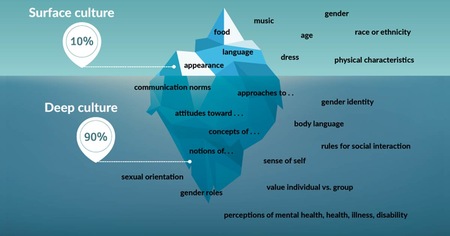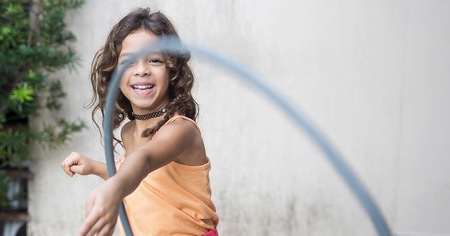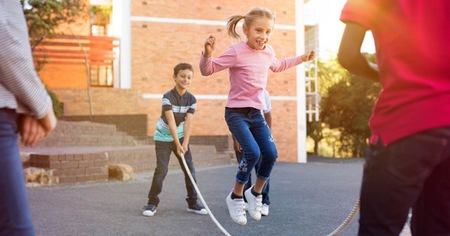1. Know basic facts about gender and sexual orientation.
Even if you're a sensitive and caring youth development professional, there may be some things you don't know about the LGBTQ—gay, lesbian, bisexual, transgender or questioning—community. For example: What is the difference between gender identity and gender expression? Is using the word "queer" a sign of being well-informed or is it an insult to an individual who is LGBTQ? Why is it important to be able to talk about gender in a "non-binary" way?
We know that a small but significant number of children in our care will grow up to become gay, lesbian, bisexual, transgender or questioning—about 5 percent of children, according to statistics. For any group of children of about 20 or more, there will be at least one child developing as a sexual minority. Like all children, they need our respect, understanding and support.
The National AfterSchool Association (NAA) Code of Ethics calls on all youth development professionals to support all types of diverse youth, including LGBTQ youth.
To be truly supportive, youth development professionals need to learn the basic facts about diversity in gender and sexual orientation. A new online learning module titled "Supporting LGBTQ Youth" is available to support this need. The book The ABC's of LGBT+ is another helpful resource.
When you make the effort to know the facts and vocabulary, youth are more likely to feel you genuinely care and will begin to trust you.
2. Realize how important you are.
Children as young as 5 years old may begin to feel uncomfortable about their identity as a male or female, and it's common for children to become aware of their sexual orientation as they enter puberty. What this means is that some children may experience feelings of being different from the norm in their gender and sexual orientation throughout their elementary years. Minority youth are listening and watching our expressions, dress, and body language. They are "reading" us all the time, because we are trusted role models and respected authority figures.
Afterschool and out-of-school programs can provide a safe haven for gender and sexual orientation minority youth when they implement these elements:
- Create a welcoming atmosphere.
- Establish behavior guidelines.
- Promote inclusion.
- Call out discriminatory speech and actions.
- Apply consequences consistently.
When you recognize your authority and take charge of the out-of-school program space, you are giving gender and sexual orientation minority youth the room to feel safe, accepted, and able to explore their identities.
3. Know it's OK to make mistakes.
We have all been socialized to think and speak in a binary way about gender. We may be in the habit of addressing a group of children as "boys and girls." We may have grown up dividing children into groups or teams by gender. We may also be used to remarking about how an article of clothing or a person looks "pretty" or "handsome."
These types of expressions and habits can be off-putting to LGBTQ youth. They can signal that adult professionals are not really understanding the effects of their words on gender and sexual orientation minority youth.
However, if youth development professionals can catch themselves and correct their statements into a gender-neutral way of speaking, this can make a big difference to youth. Youth are forgiving if they see we are trying to be more inclusive and understanding.
When you make a mistake, quickly apologize and correct your speech or action. Youth will realize that you are sincerely learning and trying, and they will accept and appreciate your efforts.
4. Really listen to young people.
We can learn a lot about the concerns and issues facing youth by asking questions and listening to their answers. Youth culture changes quickly, and the trends and jargon among LGBTQ youth may change even more quickly. Often, books and articles cannot keep pace with the facts on the ground.
For those of us who work on a daily basis with children and youth, our ability to "really listen" may be our most important skill. By listening intently and with open minds and hearts we may be able to tune in to LGBTQ youth who are suffering from stress and rejection at home, at school or in their neighborhoods. We may be the lifeline they desperately need to grow beyond what they are experiencing today and to ultimately realize their full potentials.
Our ability to listen intently and respond with care may be a lifeline for LGBTQ youth.
Want to learn more about youth development topics and receive professional development credit? Penn State Better Kid Care, in partnership with the University of Nebraska Extension, provides free* online professional development modules accessible anytime, anywhere for child care and school-age professionals. Approximately 100 hours of school-age professional development are available, including topics in PYD, SEL, and STEM. These modules are approved for professional development in 49 states.
To access the modules, visit http://extension.psu.edu/youth/betterkidcare.
*There is no charge to read the content, view the videos, and download and print the activities. To take the assessment and receive a certificate of completion, you will be prompted to pay a $5 fee.
References: Mardell, Ashley. 2016. The ABC's of LGBT+. Mango Media Inc.; Penn State Better Kid Care. "Supporting LGBTQ Youth." Online professional development module.
Eileen Wise is a youth development specialist at Penn State Better Kid Care and primary author of the PYD series.




